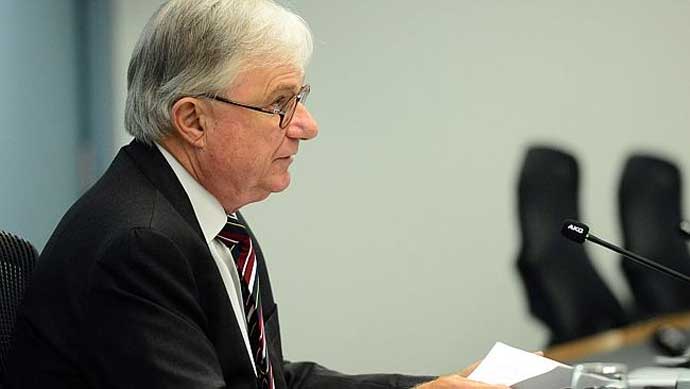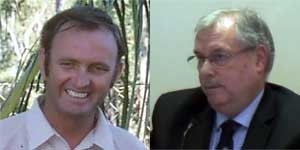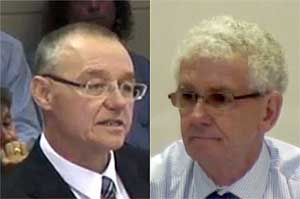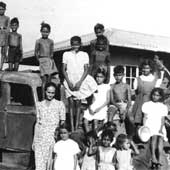You are here
Search by issue
Media Releases & News
- SU Media Releases
- 2024
- 2023
- 2022
- 2021
- 2020
- 2019
- 2018
- 2017
- 2016
- 2015
- 2014
- 2022
- 2013
- 2012
- 2011
- 2010
- 2009
- General Statements
- Sovereign Treaties: International Law
- Walkout Statement from Sacred Fire
- Proclamation (with video Readings)
- UDI's Explained
- What is 'Decolonisation'?
- Uluru Statement from the heart
- Sovereign Manifesto of Demands
- NO CONSENT to Recognition
- Submission on ILUA Amendment
- Uluru Statement video testimonials
- Uluru Statement grassroots videos
- Complexity of Treaty and Treaties
- Understanding Treaty & Treaties
- Official SU Meetings
Sovereign Union Menu
- Self Governance
- International
- Treaty - Treaties
- Sovereignty
- General Principles of Sovereignty
- First Nations sovereignty defined
- The Sovereignty Debate
- Sovereignty into Governance
- Reform: Practicing sovereignty
- Sovereignty after Mabo
- What about Sovereignty?
- Current sovereignty debate
- Sovereignty protest Qld
- Research papers & Theses
- Sovereignty never ceded -thesis
- SA sovereignty challenged
- Rosalie Kunoth-Monks leads the way
- Pacific Islanders Act 1875
- Asserting Aboriginal Sovereignty
- Aboriginal rights then & now
- Michael Kirby Oration
- Academic Paper : Songlines
- John Howard recognised sovereignty
- Queen Victoria: Crown owns nothing, Aborigines sovereign
- Rejecting 'recognition'
- Yingiya Mark Guyula Speach
- New Way Summits
- Decolonise
- August
- Australia: UN Questionnaire
- July
- Law against Genocide Bill
- Rally: 'Let us go Home'
- Ray Jackson: 30 years of light
Special Features
- History
- During Invasion
- Invasion
- 1788-2014 Invasion to Resistance
- 'The condition of the natives' 1905
- Mapping QLD massacres
- Cooks Instructions & Diary
- Whites & Blacks during the colonisation in the late 19th Century
- Australia's history of slavery
- Dad 'n Dave - The Qld killing fields
- Treatment of Aboriginal Prisoners
- 'Conspiracy of silence' blood baths
- British Parliament Report 1837
- Culture
- Horrors of North West WA
- Ignorance & Racism
- Invasion
- Post Invasion
- Stolen Remains and Collections
- Culture
- Kitty Wallaby: Dreamtime & colanisation
- Improve heritage management
- Unlock secrets of rock art
- Kurlpurlunu found in Central Australia
- Forgotten' Woolwonga tribe for 130 years
- First Nations rock art is at risk
- Language diversity threatened, study
- Languages Treasure trove
- Pressure to lose values and culture
- Languages reveal scientific clues
- Ignorance & Racism
- Father of the Stolen Generation
- Aboriginal counting myth won't go away
- Pleading letters to 'Protector'
- 1926 plan for an Aboriginal state
- First prisoner abuse inquiry 1905
- Legalised slavery: hidden reality
- The second dispossession
- Rottnest Island internment camp
- Meston's 'Wild Australia' Show 1892-1893
- Stolen Wandjina: Cultural Appropriation
- Whitefellas destroyed our bible
- Fraser Island Death Camp
- Intervention to kill self-determination
- Ongoing Warfare
- Pre Invasion
- Culture
- Genesis
- Out of Australia - Not Africa
- confirmation of genetic antiquity
- WA's Mid West History 30K
- 'Australian' peoples were first Americans
- How First Nations saw the Stars
- Ice Age struck First Nations people hard
- Kimberley paintings could be oldest
- Misunderstand First Nations science
- Sea-Level recorded
- James Cook's Secret Instructions - 30 June 1768
- Trading & Hospitality
- Landcare, Science, Agriculture
- Captain Cook
- During Invasion
- The Frontier Wars
- Memorial Marches
- The Frontier Wars
- Anzac Gathering 2012
- Aboriginal servicemen honoured
- 1905 Report WA's North
- Anzac Day Videos
- Battle for FF memorial
- From invasion to resistance
- Frontier Wars Remembered 2016
- Image Galleries
- Invasion & Sovereignty
- Invasion Day Callout for 26 January
- Memorial ignores frontier war
- The Freedom Fighters
- Truth about the Gulf country
- Conflicts/Massacres
- Massacres & Trophies
- Mixed Media
- Canberra 2016
- Closing the Homelands
- Homelands explained
- Central Articles
- Closing Homelands for mining
- Vital for ecosystems
- Terra nullius never went away
- Barnett's plan to axe homelands for years
- Fed Gov't $100 million deal with states
- Mining: $10,000 job sweeteners
- Abbott rejects international law
- Barnett's War on Health
- Anatomy of Racism in 2015
- Food supply autonomy needed
- Freedom Summit: WFD Media Release
- Funding: Confusing-fractured-racist
- It's OK to discriminate
- The demise of Coonana community
- Sovereign Union Articles
- Reports by State & Territory
- Video - Images - Audio
- Rallies
- Media Reports
- Homeland Closures
- 'Recognition' Constitution
- Nuclear Waste Dumps
Key Topics & Issues
- NT Detention Hearings
- NT Intervention
- Sovereign Embassies
- All Embassies - Map
- Embassies
- Canberra Tent Embassy
- Perth Sovereign Embassies
- Portland Sovereign Embassy
- Brisbane Sovereign Embassy
- Brisbane Embassy - Home
- What is Brisbane Embassy?
- 2013 content
- 2012 content
- New Stolen Generation rally
- Police arrest sovereigns
- Politically motivated eviction
- Brisbane - Eviction notice
- Brisbane Embassy meets CMC
- Brisbane conference 2012
- Charges dropped but ...
- Council meets Elders
- Embassy arrestees protest
- Embassy midnight raid
- Embassy to be shut down
- Fire destroys Embassy
- Musgrave heritage listing
- Sovereigns charges dropped
- Moree Sovereign Embassy
- Broome Tent Embassty
- Woomera Sovereign Embassy
- Airds Sovereign Embassy
- Gugada Sovereign Embassy
- Tent Embassy in Airds, Campbelltown
- Call for Embassy tolerance
- Embassy Articles & Media
- Land, Sea & Water
- Northern Murray Darling Basin
- Water Treaty Talks: Murray-Darling Basin Nations
- Mining Country
- Adnyamathanha people of the rocks
- Ancient approach to global emissions
- Danger: Developing the North
- First Nations Land Management
- Historical sites in NSW
- Clark and Mansell: trading beef
- David Suzuki: Aboriginals best bet
- Dingoes may save wildlife
- Fires support mammals - research
- First Nations had villages and farmed
- Homelands vital for fragile ecosystems
- Hunter gatherers Myth - Bruce Pascoe
- Kangaroos win after hunt with fire
- Race to protect ancient rock art
- Kakadu Park 40th Anniversary
- Land rights and the government
- Native 'wild' rice in Australia
- Native Title amendments slammed
- Ngoongar Grower group using Native Youlks
- WA Aboriginal Heritage Act overview
- Sovereign Neighbours
- West Papua - Freedom Flotilla
- Articles - Free West Papua Movement
- December
- October 2013
- September 2013
- Emergency Protest of Illegal Deportation
- FF activists a test for Abbott government
- West Papuans Deported to Port Moresby
- Six West Papuan's flee after ceremony
- Freedom Flotilla claims success
- Sacred water and fire celebrated
- Ceremony completed in secret
- Military buildup in destination port
- Men released: Treason charges pending
- Julie Bishop incites military action
- Threats to turn back boat
- Four arrested at FF Welcoming
- Time for human rights in Papua
- August 2013
- Media Files
- Articles - Free West Papua Movement
- Atooi Unification Ceremony
- Atooi now has jurisdiction
- Australia & Fiji union
- Canada Day: Time of Mourning
- Canada First Nations alliance
- Canada: Commercial fishing rights
- India: Ruling against mining co
- Indigenous rights struggle
- North American Indians seek Sovereignty
- Statue honors US freedom fighters
- The Creation of one world gov't
- Vanuatu: Pacific custom land tenure
- Arizona tribal law system
- Canada: Tsilhqot'in peoples win ruling
- Embassy meets Indonesians
- Grandmothers: worst ever stealing
- Ibans acquired native customary rights
- Maori did not cede sovereignty
- UN: Canadian Aboriginals in crisis
- West Papua - Freedom Flotilla
- The Invasion
- A day of sadness
- Health and Social Issues
- Suicides & Depression
- Suicides just happened?
- Nothing will be done about the suicides
- First Nations suicide rates
- Gov't not listening - People die
- 77 suicides in SA alone
- 996 deaths by suicide
- Hundreds will suicide if we wait
- Suicides: 'A humanitarian crisis'
- Suicide is humanitarian crisis
- Suicide epidemic worldwide
- Noongar x3 suicide rate
- Falsely arrested & drugged
- Cashless Welfare Card
- Family breakdowns causing repeats
- General Health Issues
- Government Policies
- Youth suicide at crisis point
- Negatively framing policies
- A little boy who hid under the bed
- Defend and Extend Medicare
- Call for help results in children stolen?
- Doctors in communities in WA reduced
- Children and human rights
- Our children more likely to be removed
- Justice? wake up WA
- Need for Bilingual schools
- Racism Effects
- Rosie Fulton
- Work-for-the-Dole Unhealthy
- Youth lost in prisons: Amnesty
- Suicides & Depression
- Gross Abuse
- Genocide and apartheid
- National
- States & Territories
- Suicides
- Imprisonment & Deaths
- International Critisism
- Genocide
- More Gov't Abuses
- Mining and Destruction
- Racism
- Racism Game in Australia
- 27% say it's OK to be racist
- Abbott backs out of Racism changed
- Genocide by Apartheid Australia
- How Bolt should be punished
- Racial discrimination in Australia
- Racism Media
- Racism driver for ill health
- Racism is a health issue
- Racism worse than Sth Africa
- Reform: Just Ask Black Australia
- Unpacking White Privilege
- Welcome to Dja Dja Wurrung Country
- White Australian National Anthem
- Solidarity
Media & Resources
Activism and Politics
- Activism
- Homelands
- For the record: Sovereignty Never Ceded
- Freedom Fighters memorial call
- Anthony Fernando 1864–1949
- Fernando's Ghost - Transcript
- Historic Videos and Images
- Australia’s dirty secret
- Deebing Creek development
- Pilbara pastoral strike
- Pro-Black Isn't Anti-White
- Truth Telling Uluru Statement
- UN slams anti-protest laws
- Whitlam: Legacy of Wave Hill
- Winyirin Bin Bin, Pilbara Strike
- Politics
Child sex abuse inquiry: 'Crystal clear' evidence to support charges against Don Henderson
The inquiry in Darwin has been focusing on abuse of children at the Retta Dixon home, which mainly housed Aboriginal children between 1946 until it closed in 1980.

Chair of the Royal Commission into Institutional Responses to Child Sexual Abuse,
Justice Peter McClellan (Image: Perth Now)
Xavier La Canna 25 September 2014
There was clearly evidence to support charges against convicted sex offender Donald Bruce Henderson, who had numerous claims of child abuse against him dropped in 1976 and again in 2002, the head of an inquiry says.

Right: The NT Director of Public Prosecutions Jack Karczewski QC is grilled at the royal commission.
(Images ABC)
The chair of the Royal Commission into Institutional Responses to Child Sexual Abuse, Justice Peter McClellan, on Thursday challenged the NT Director of Public Prosecutions (DPP), Jack Karczewski QC, who in 2002 was a deputy DPP.
The inquiry was shown an email from former crown prosecutor Glen Dooley, who handled the early part of the case against Mr Henderson.
Mr Dooley described Mr Henderson, who is now aged 78, as allegedly being "something of a sexual monster" with children in his care.
A witness said he once saw Mr Henderson having sex with a chicken, according to the email.
The letter indicated the matter should proceed to trial in 2002 and given a "decent go" even if it did not culminate in convictions.
"In these cases from what you have read there was plainly evidence to support the charges," Justice McClellan said to Mr Karczewski on Thursday.

(Images ABC)
"There was evidence to support some charges," Mr Karczewski responded.
"That is crystal clear," Justice McClellan said before adjourning the proceedings until Friday.
The inquiry heard earlier there were several reasons why 15 charges that passed the committal phase of proceedings were dropped before the case was due to go to trial.
Initially there were more than 80 charges levelled at Mr Henderson, including for indecent assault and buggery.
A document tendered to the commission showed that Michael Carey, who at the time was the general counsel to the NT DPP, recommended the charges against Mr Henderson be dropped because of inconsistencies with testimony from some witnesses and an inability for some of them to nail a particular alleged offence to a particular time.
Mr Carey is now a sitting NT magistrate.
The commission also heard difficulties because one of the alleged victims of Mr Henderson also had allegations of child sex crimes levelled against them.
Earlier, the commission heard historical allegations that Mr Henderson molested children in swimming spots across Darwin between July 1965 and October 1983.
He was convicted of two counts of sexually abusing children at the Casuarina public swimming pool in 1983 and handed a $500 good behaviour bond.
Lawyer John Lawrence SC, who is acting for some of Mr Henderson's alleged victims, questioned former police detective Roger Newman, who ran the investigation into Mr Henderson, as to why he thought Mr Henderson was not prosecuted for crimes other than the 1983 charges.
"It would have alerted you as a detective that he might have felt a lot safer against the authorities if the charges were in relation to young boys and girls from Retta Dixon, as opposed to a couple of young white kids," Mr Lawrence said.
Mr Newman has been critical of the decision not to prosecute Mr Henderson, who had court action withdrawn against him in 1976 and again in 2002.
Under questioning from senior counsel assisting the commission, Sophie David, Mr Newman said he had notes that appeared to show Mr Henderson was "with the YMCA World Vision then AMP Life Insurance".
Mr Newman said he was not certain of the connection between Mr Henderson and the YMCA.
The commission also heard that Mr Henderson was either an adoptive or a foster parent to some children.
The inquiry in Darwin has been focusing on abuse of children at the Retta Dixon home, which mainly housed Aboriginal children between 1946 until it closed in 1980.
Graphic evidence of physical and sexual abuse at the hands of Mr Henderson, who worked as a "house parent" at Retta Dixon, and other workers at Retta Dixon has been aired.

Children were "chained like dogs" and sexually assaulted at a government-run home for Aboriginal children in Darwin, a child sex abuse inquiry has heard. A former resident of the Retta Dixon home in Darwin told the Royal Commission Into Institutional Responses to Child Sexual Abuse.
First Nations girls were chained to their beds, starved and flogged with leather belts until they bled, as punishment at the Retta Dixon Home in Darwin. READ MORE

